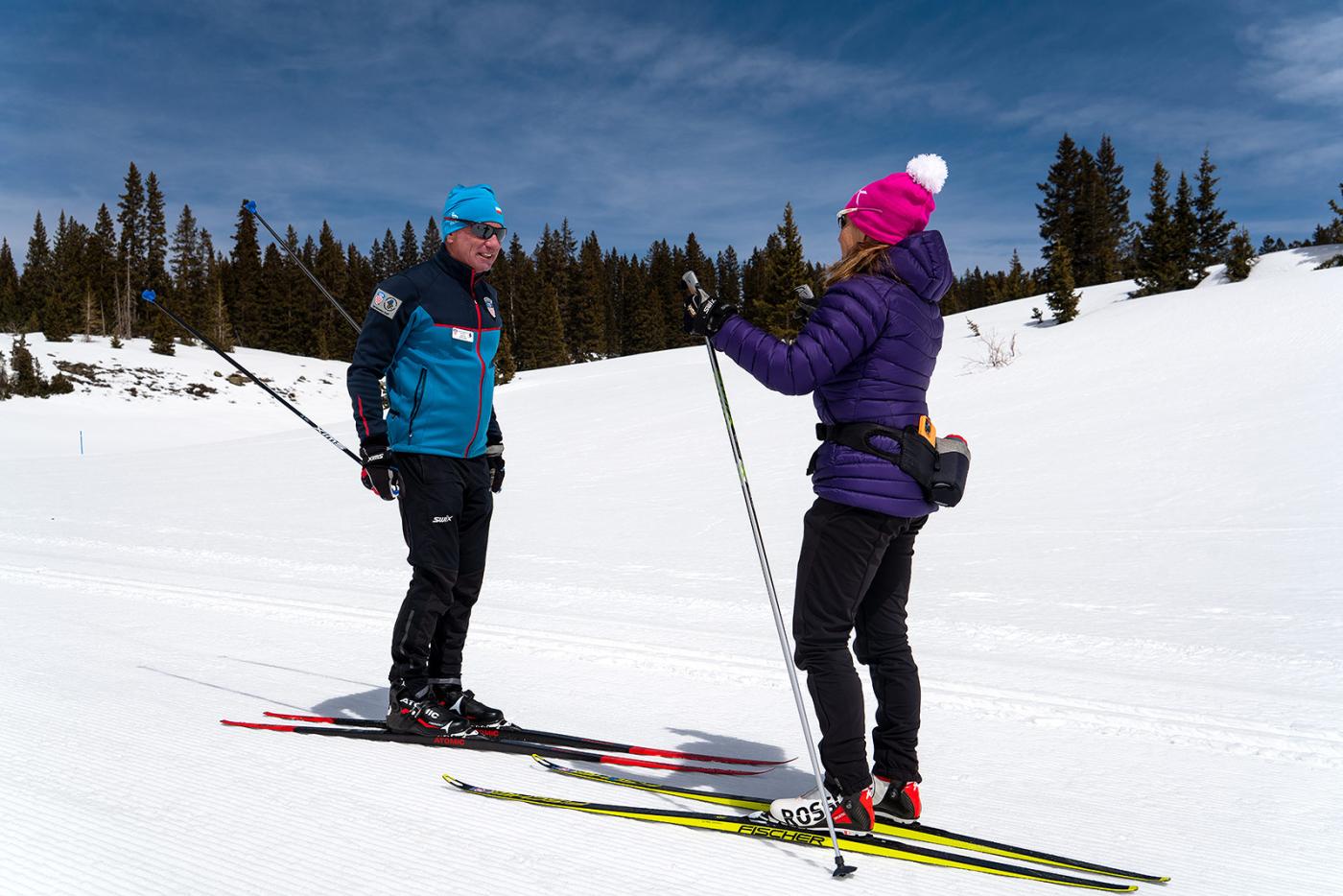By Scotty McGee and Martin Wiesiolek
When you buy a cross country ski lesson you might assume that your instructor has some kind of ski teaching credentials. But more often than you would think, the “ski instructor” name tag indicates the person’s job, not their qualifications.
It is not necessary to acquire an advanced degree in education to become a competent ski instructor but at least some time spent learning how to be an effective teacher can make a big difference in the quality of instruction. To learn the skills that make up a competent instructor takes time and money. However, lack of meaningful incentives for higher instructor qualifications in many Nordic centers can result in the instructors' lack of interest in investing in education.
How do you know if your ski instructor is any good?
If the ski instructor is new to you, you have no easy way of knowing if learning from them will be effective because you wouldn’t know the internal standards used by the ski school for assessing and training their instructors. So, what can you do to secure the best ski lesson experience possible? You can rely on the ski teaching industry certifications, which are your best bet at ensuring the lesson will be centered on you and the skills you learn will be valid, current and transferable to another lesson with another instructor.
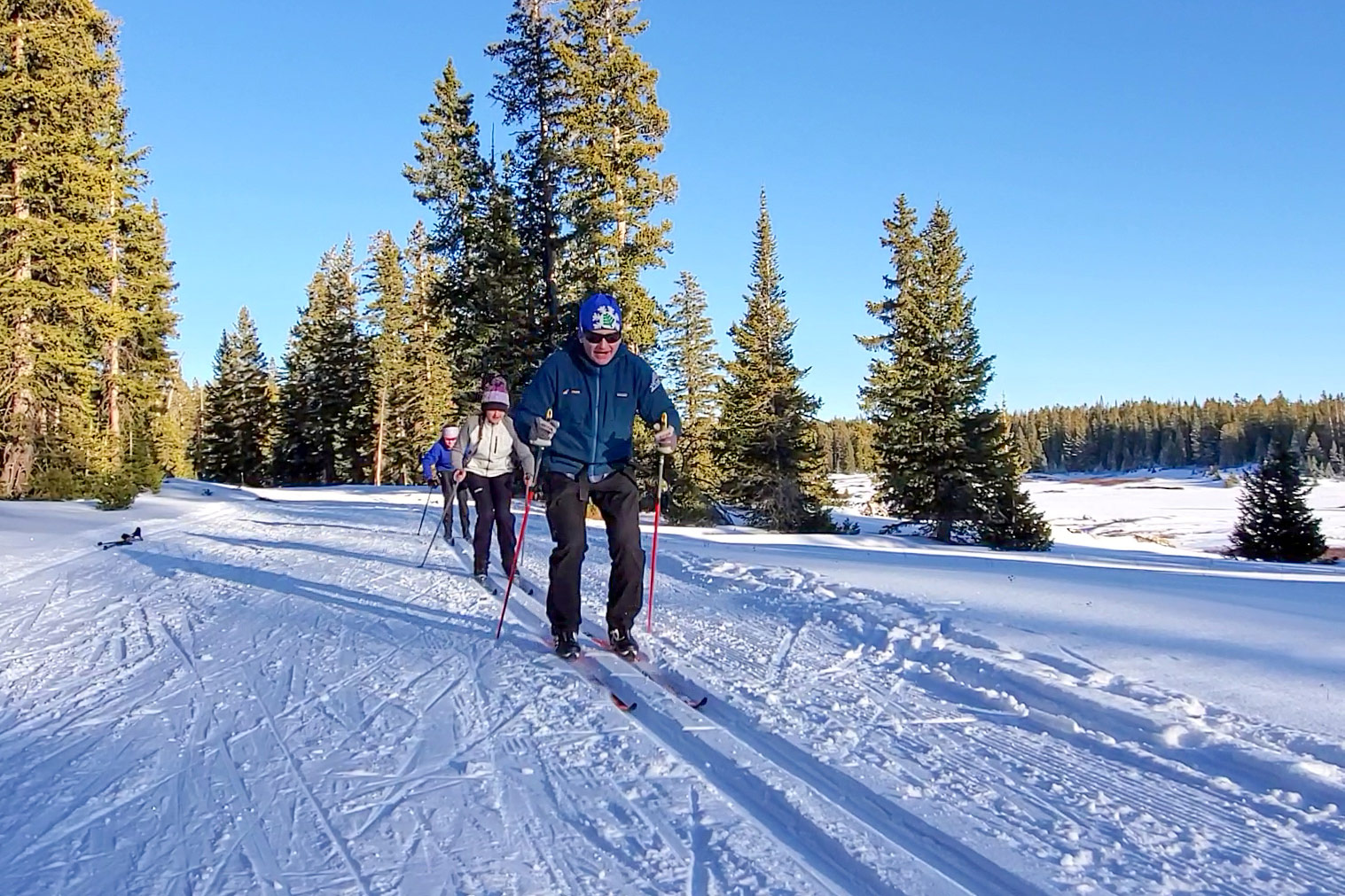
In the U.S. there are two organizations that certify cross country ski instructors, Professional Ski Instructors of America (PSIA) and U.S. Ski and Snowboard (USS&S). Most recreational skiers would seek the services of PSIA-certified instructors, since USS&S focuses mainly on whole-athlete development to enhance athletic performance.
These two organizations use the following designations: PSIA Levels I, II and III and USS&S Levels 100 and 200 (a Level 300 is in development). The higher the level, the more advanced the ski instructor. While certification alone is not a singular measure of qualifications, it’s a strong indication of the instructor’s adequate educational foundation for teaching and the ski school’s commitment to excellence.
The meaning of ski instructor certifications
Certified instructors/coaches bring far more to the table than the ability to ski. In fact, one of the biggest misperceptions is that PSIA or USS&S certification is a skiing certification, when skiing is but one part of a much bigger picture.
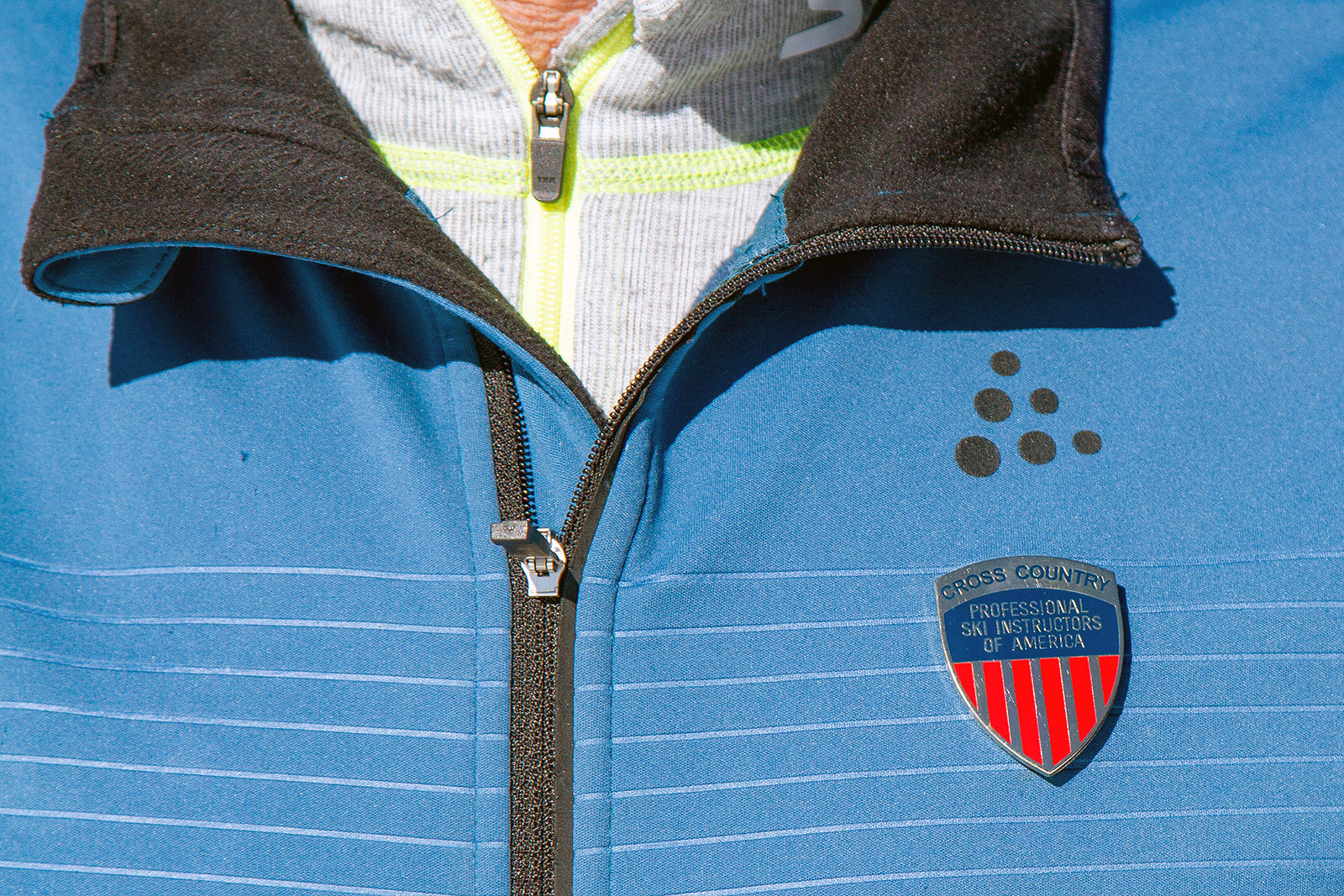
Ski instruction demands versatility and instructors teach in a wide variety of skiing environments in both classic and skate styles of cross country skiing in lessons designed for recreational skiers as well as race-focused athletes.
Within PSIA there are three certification levels: I, II, and III. The three certification levels roughly correspond to the ability to instruct beginner, intermediate and advanced skiers. For each level the instructor has to pass a test in six areas:
- Skiing Performance: adjusting and adapting own skiing in order to demonstrate skills and tasks to students
- Technical Understanding: ability to evaluate own and other skiers’ skiing skills, considering equipment, wax choices, terrain and tactics
- Movement Analysis: accurately describe cause-and-effect relationships in skier’s skiing and provide relevant prescription for change
- People Skills: exhibit the people-skill fundamentals to develop trust with all individuals and to demonstrate awareness of the goals, motivations and emotional needs of each student
- Teaching Skills: demonstrate proficiency in teaching fundamentals by planning and adapting the lesson experience based on the needs, goals and abilities of their students while helping them to recognize and assess the changes in their skiing
- Professionalism and Self-Management: contribute to a professional environment by being aware of how their decisions and behaviors affect individuals and the group as a whole
Why not take a lesson from an elite-level athlete?
If you get a chance to learn from an elite-level athlete, do it. You will learn different perspectives on skiing performance, gain insights into training discipline, learn new drills for skills, and hopefully, be inspired! High-level athletes might bring to a lesson unique insights into physical and mental training discipline for achieving the competitive edge or the ability to demonstrate skiing on the highest level. Exposing yourself to different styles of teaching and to various lesson experiences is valuable because different instructors bring different strengths to the lesson. But be open to having a lesson of varying satisfaction levels when hiring a non-teacher to teach you. A person’s ability to perform a sport at a high level does not have to equal their ability to teach it.
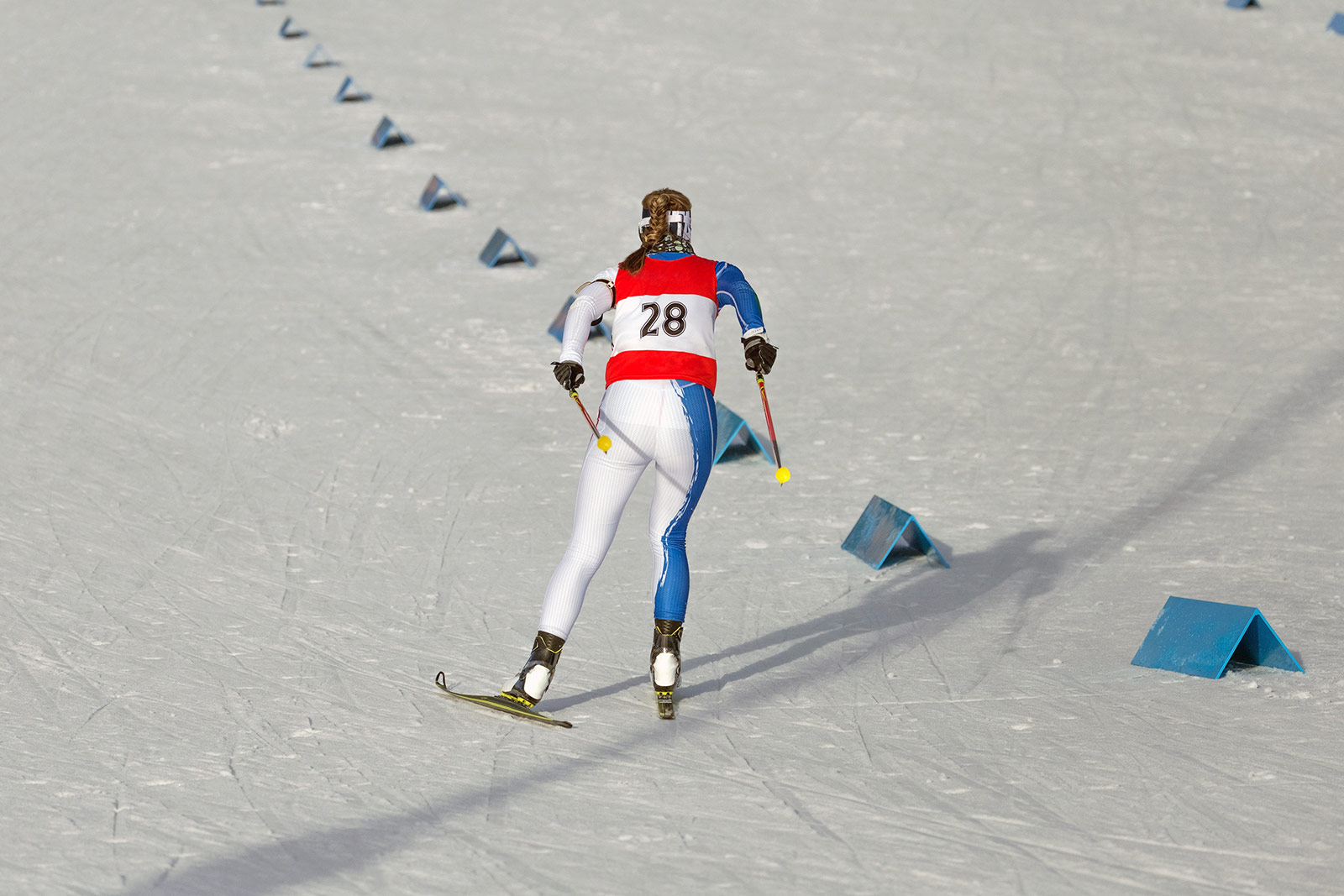
How about taking a lesson from a ski instructor who is not an Olympian? Clear standards in ski education as set by a national organization, such as PSIA, provide an external check on the teaching and learning process as well as serve as a guide for ski instructors for defining success in their lessons. Without the standards neither your instructor nor you will have the clarity on how to reach and measure success of a ski lesson.
Another reason for caution when taking lessons from uncredentialed instructors is the inconsistency of their teaching with the industry standards. They will teach according to their skill progressions and may not be able to build upon a previous lesson. It may result in you taking one step back for every two steps forward in your skill progressions.
And last but not least, if you take a lesson from an instructor who did put in the effort to verify through certification their ski teaching credentials, you might not have the means to know if what you are being taught and how you are being taught is current, technically accurate, or valid.
How and what to ask when hiring a ski instructor
Take a little bit of time to find a competent instructor that can help you reach your goals and to accelerate your learning curve. Call a cross country ski school where you’d like to learn and don’t be shy about asking questions about the instructors. You are buying a service and you have the right to ask questions. Make your goals clear to the ski school and ask if the assigned instructor will be able to comfortably help you reach them. Some of the questions you can ask:
- Does the ski instructor have any ski teaching credentials, and if yes, what are they and from which organization? PSIA or USS&S? What level? (PSIA Levels I, II, III; USS&S Levels 100, 200; in Canada CANSI Levels 1, 2, 3, 4)
- If teaching a child, does the ski instructor have any children-teaching accreditations, such as PSIA's Children's Specialist 1 or 2 (1)?
- If teaching a skier with physical or intellectual disabilities, what is the experience of the ski instructor in adaptations of the sport to the skier? Does the instructor have PSIA’s adaptive certifications (2)?
You can also check out the websites of the cross country ski centers and look for the instructors’ bios and credentials. Keep in mind that while a ski school may be a “PSIA member school” or a ski club may be a “USS&S Certified Club,” not all of their instructors and coaches might be certified. If a ski school will not honor a request for a specific-level certified instructor, then ask for instructor or coach by name. In fact, some of the best advice for securing a lesson with an instructor with specific certifications is to directly negotiate with the instructor time and date of a lesson, and then to book the lesson through the ski school with that instructor. Typically, the ski lesson will cost the same no matter the instructor’s certifications so you might as well get your money's worth by asking for specific credentials.
Kudos to you
No matter your skiing ability level, from novice to advanced, if you end up taking a lesson you deserve a pat on the back. Putting yourself out there to learn something new or to reconcile your skills with an instructor is an emotional risk and will take you outside your comfort level. It often takes curiosity, change of perspective, and even courage to take on a challenge of learning new skills.
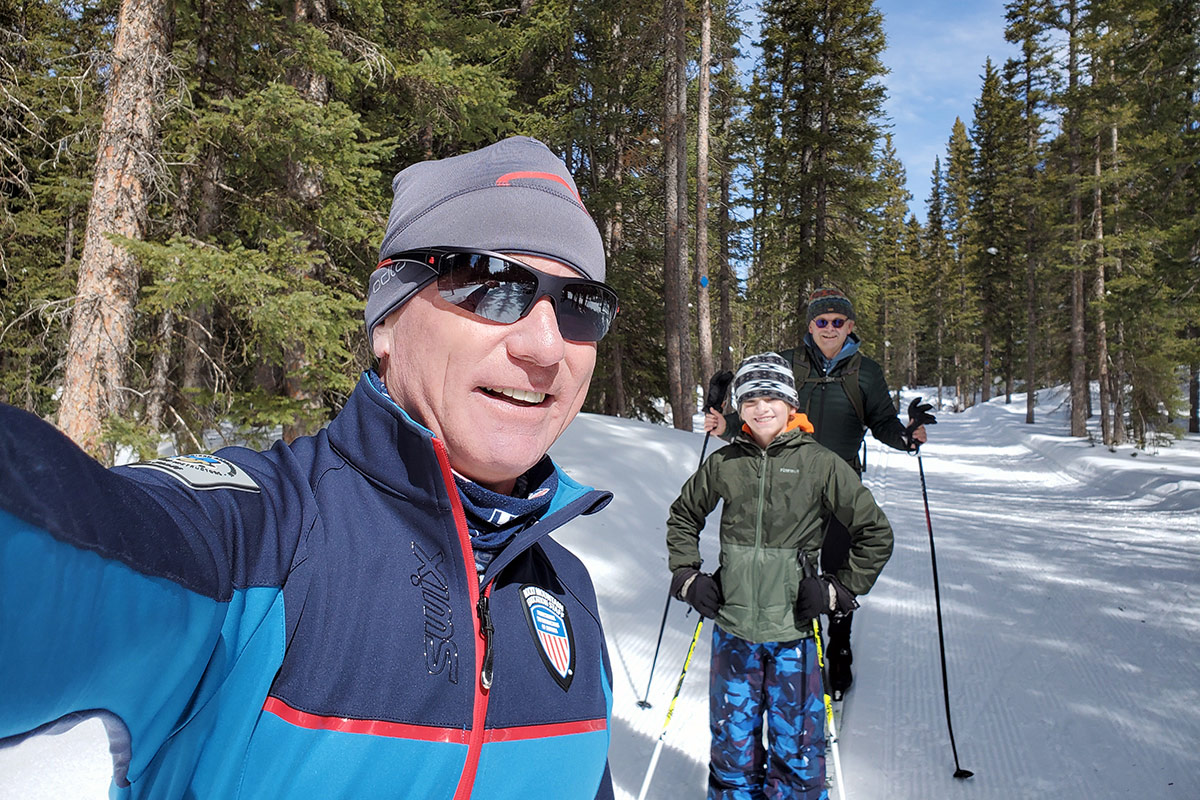
Cross country skiing is a complex sport to learn. You can try to teach yourself or learn from a friend, but you will learn faster, have more fun, and get more out of your day when you learn how to ski or sharpen your skills from a competent and credentialed instructor. Knowing which skills to learn, the fastest way to learn them, and then how to apply those skills to techniques in classic and skate styles of cross country skiing require a systematic approach based on the solid knowledge of the sport.
(1) As of January 2023 there were no PSIA cross country-specific Children’s Specialist Accreditation but the Alpine Children’s Accreditations transfer well to teaching children how to cross country ski.
(2) As of January 2023 there were no PSIA cross country-specific adaptive instructor certifications but the Alpine adaptive certifications transfer well to adapting cross country skiing to skiers with disabilities.
References:
- Professional Ski Instructors of America (PSIA): https://www.thesnowpros.org/
- U.S. Ski & Snowboard (USS&S): https://usskiandsnowboard.org/
- Canadian Association of Nordic Ski Instructors (CANSI): https://cansi.ca
- International Ski Instructor Association (ISIA): https://isia.ski
About the authors:
Marcin (Martin) Wiesiolek is a cross country, Alpine and adaptive ski instructor, and serves on the Educational Staff for Professional Ski Instructors of America, Rocky Mountain Division. He lives in Grand Junction, Colorado.
Scotty McGee teaches and guides Cross Country, Telemark and Alpine skiing in Jackson, Wyoming, and is a four-term veteran of the Professional Ski Instructors of American National Nordic Team. You can access his services through his website.

